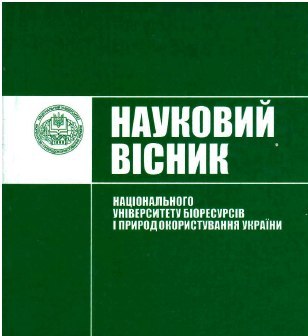Mетодика дослідження спонукального дискурсу на прикладі навчальних інструкцій
DOI:
https://doi.org/10.31548/philolog0(263).2017.028%20-%2036Анотація
У статті розглянуто спонукальний дискурс як джерело для виявлення механізмів успішної комунікації між учасниками процесу навчання. Встановлено конститутивні характеристики інструкції як спонукального дискурсу. Проаналізовано зразки інструкцій до виконання вправ у ракурсі інференційно-прагматичної методики аналізу дискурсу.
Посилання
Vetskur, T. A. (2011). Sekventsiynyi kharakter instruktyvnoho povchalnoho dyskursu (na materiali angliysyskoi movi) [Sequential character of instructive didactic discourse] Nova fіlologіya. № 44. 23-28.
Holoshchuk, S. L (2007). Kohnityvno-komunikatyvni osoblyvosti sponukalnoho dyskursu [Cognitive communicative features of causative discourse] Visn. Nats. un-tu “Lviv. Politekhnika”. № 586. Lviv, 56-59.
Holoshchuk, S. L. (2011). Linhvoprahmatychni osoblyvosti sponukalnoho dyskursu v anhlomovniy prozi (na materiali khudozhnikh tvoriv druhoyi polovyny XX st.) [Pragmalinguistic features of causative discourse in English prose]: avtoref. dys. ... kand. filol. nauk : 10.02.04. Lviv, 20.
Holoshchuk, S. L. (2011). Linhvoprahmatychni osoblyvosti sponukalnoho dyskursu v anhlomovniy prozi (na materiali khudozhnikh tvoriv druhoyi polovyny XX st.) [Pragmalinguistic features of causative discourse in English prose]: avtoref. dys. ... kand. filol. nauk: 10.02.04. Lviv, 20.
Kanashchuk, S. A. (2012). Instruktyvnyi dyskurs IT korporatsyi: sotsyolynhvystycheskyy aspekt [Instructive discourse of IT corporations: socio linguistic aspect]: dys… kand. filol. nauk. 10.02.01. Tomsk, 227.
Kondrashkyna, E. Y. (2015). Prahmalynhvystycheskaya kharakterystyka instruktsyi na materiale russkoho y serbskoho yazykov [Pragmalinguistic characteristic of an instruction on the materials of Russian and Serbian languages] Filolohicheskiye nauki. Voprosy teoryi y praktiki. Ch. I. № 9 (51). Tambov: Hramota, 85-91.
Kravchenko, N. K., Pasternak, T. A. (2016). Metodyka issledovaniya razhovornoho diskursa v rakurse teorii relevantnostiy (inferentsionno-prahmaticheskaya model) [Research methods of colloquial discourse in terms of relevance theory (inferential-pragmatic model)]. Odeskyi linhvistychnyy visnyk. Vyp. 8. Odesa, 40-43.
Kravchenko, N. K. (2017). Dyskurs y dyskurs-analiz: kratkaya entsyklopediya [Discourse and discourse analysis: brief encyclopedia] Kyev: Interservys, 286.
Moshchanskaya, E. Y. (2013). Instruktsiya po ekspluatatsiyi kak zhanr dyrektyvnoho dyskursa: predperevodcheskiy analiz [Service instructions as a genre of causative discourse: pre translation analysis]. Filolohycheskiye nauki. Voprosy teoriiy i praktiki. Ch. I. № 7 (25). Tambov: Hramota, 134-137.
Nazmeeva, N. A. (2011). Metodychnyi dyskurs iak linhvistychnyi fenomen u suchasniy dyskursyvniy paradyhmi [Methodological discourse as a linguistic phenomenon in modern discursive paradigm] Naukovi zapysky Natsionalnoho universytetu «Ostrozhka akademiya». Vyp. 20. 150-155.
Narushevych-Vasylyeva, O. V. (1999). Zasoby vyrazhennya funktsiyi prokhannya FSP sponukalnosti (na materiali tekstiv khudozhnoho stylyu) [Ways to express request function of FSP causation (based on materials of literary style)] Zapysky z ukrayinskoho movoznavstva. Vyp. 8. Odesa: Astroprynt, 86 – 94.
Nosova, L. N. (2013). Kommunykatyvno-prahmaticheskiy potentsial instruktsii po prymeneniyu lekarstvennykh sredstv v farmatsevticheskom diskurse [Pragma communicative potential of a summary of product characteristics in pharmaceutical discourse]: avtoref. dys… kand. filol. nauk. 10.02.19. Moskva, 24.
Pasternak, T. A. (2016). Intensyfikatsiya protsesu vyvchennya inozemnykh mov [Intensification of the process of learning foreign languages]. Zb. materialiv II Mizhnar. nauk.-prakt. konf., 25-26 lyutoho. Kyiv: Milenium, 181-182.
Formanovskaya, N. Y. (1998). Kommunykatyvno-prahmatycheskye aspekty edinits obshcheniya [Pragma communicative aspects of communication units] Moskva: Ynstytut russkoho yazyka ym. A.S. Pushkina, 293.
Franko, O. B. (2007). Semantychni ta prahmatychni parametry sponukalnoho dyskursu (na materiali nimetskomovnykh khudozhnikh tvoriv ХХ st.) [Semantic and pragmatic parameters of causative discourse (based on materials of German fiction of ХХ century)]: avtoref. dys... kand. filol. nauk: 10.02.04. Kyiv, 19.
Kharchenko, S. V. (2015). Variantnist fakultatyvnykh elementiv semantyko-syntaksychnoi struktury rechen [Variation of optional elements of semantic and syntactic structure of sentences]. Scientific Herald of National university of life and environmental sciences of Ukraine. Series: Philological Sciences, 215, 33-39
Shynkaruk, V.D. Dyskursyvne vyslovliuvannia yak funktsionalno-movlennieva odynytsia (1996). [Discursive statement as functionally-speech unit ]. Zbirnyk “Struktura ta semantyka movnykh odynyts u funktsionalnomu aspekti” [Bulletin The structure and semantics of language units in the functional aspect ]/ . – Chernivtsi: ChDU, 1996. – S.180-192.
Shutova, O. O. (2011). Povchalnyi dyskurs: komunikatyvno-prahmatychni ta zhanrovi osoblyvosti (na materiali ukrayinskykh, rosiyskykh, anhliyskykh ta frantsuzkykh folklornykh dydaktychnykh tekstiv) [Instructive discourse, pragmatic communicative and genre features (based on Ukrainian, Russian, English and French folk didactic texts)]: avtoref. dys... kand. filol. nauk : 10.02.15. Donetsk, 20.
Grice, H. P. (1975).Logic and conversation. Syntax and semantics. V. 3. NY: Academic Press, 41-58.
Grice, H. P. (1989). Studies in the way of words. Essays 1-7, 14,
; Retrospective Epilogue. Cambridge, Mass: Harvard University Press.
Sperber, D., Wilson, D. (1995). Relevance: Communication and Cognition. 2nd ed. Oxford: Cambridge MA.
Завантаження
Опубліковано
Номер
Розділ
Ліцензія
Стосунки між правовласниками і користувачами регулюються на умовах ліцензії Creative Commons Із Зазначенням Авторства – Некомерційна – Поширення На Тих Самих Умовах 4.0 Міжнародна (CC BY-NC-SA 4.0):https://creativecommons.org/licenses/by-nc-sa/4.0/deed.uk
Автори, які публікуються у цьому журналі, погоджуються з наступними умовами:
- Автори залишають за собою право на авторство своєї роботи та передають журналу право першої публікації цієї роботи на умовах ліцензії Creative Commons Attribution License, котра дозволяє іншим особам вільно розповсюджувати опубліковану роботу з обов'язковим посиланням на авторів оригінальної роботи та першу публікацію роботи у цьому журналі.
- Автори мають право укладати самостійні додаткові угоди щодо неексклюзивного розповсюдження роботи у тому вигляді, в якому вона була опублікована цим журналом (наприклад, розміщувати роботу в електронному сховищі установи або публікувати у складі монографії), за умови збереження посилання на першу публікацію роботи у цьому журналі.
- Політика журналу дозволяє і заохочує розміщення авторами в мережі Інтернет (наприклад, у сховищах установ або на особистих веб-сайтах) рукопису роботи, як до подання цього рукопису до редакції, так і під час його редакційного опрацювання, оскільки це сприяє виникненню продуктивної наукової дискусії та позитивно позначається на оперативності та динаміці цитування опублікованої роботи (див.The Effect of Open Access).

